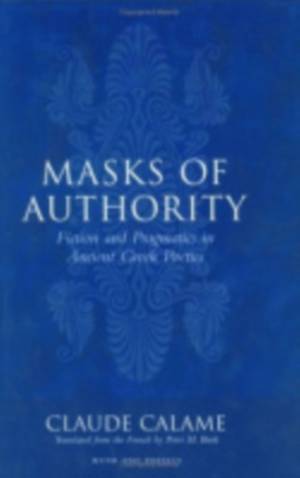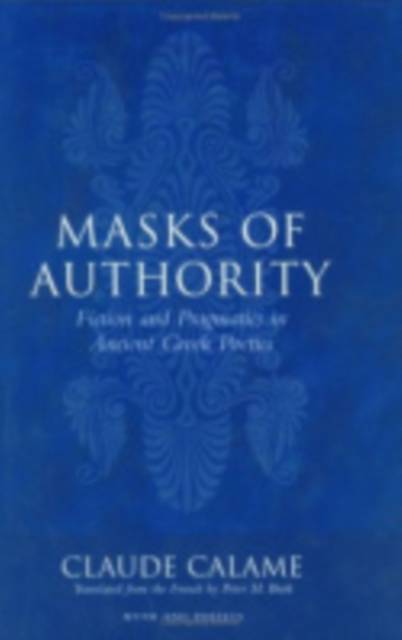
- Afhalen na 1 uur in een winkel met voorraad
- Gratis thuislevering in België vanaf € 30
- Ruim aanbod met 7 miljoen producten
- Afhalen na 1 uur in een winkel met voorraad
- Gratis thuislevering in België vanaf € 30
- Ruim aanbod met 7 miljoen producten
Omschrijving
Exploring a variety of literary texts representing different poetic genres, Claude Calame, an internationally known classicist, draws the lineaments of a real history of the means used by ancient Greek poets to create in their works a fictional authorship. In this collection of essays, he shows that they made of their poems, through various discursive strategies, texts to be performed, with the collective, ritual, and pragmatic values implicit in the ideas of craft and performance. How is it possible to distinguish between the external context and reception of a discursive work and the elaborate poetic effects produced in the text itself by means of language? Clearly, the partly fictional figure of the author "constructed" by the text is not the same as the biographical author. In ancient Greece, moreover, the person of the composer of a poem was often distinct from the person of its performer.Important examples in Masks of Authority include some of the Homeric Hymns, didactic poetry by Hesiod, a bucolic poem of Theocritus, performed poetry by Sappho and mimetic poems by Callimachus, Attic tragedy and comedy in masked performances (Sophocles and Aristophanes), an iconographic inscription, an authoritative scientific discourse by Hippocrates, and an initiatory commentary to an Orphic theogony. The result is a selective history of Greek poetics from the perspective of its authorial devices and social functions, its place between oral and written traditions.
Specificaties
Betrokkenen
- Auteur(s):
- Uitgeverij:
Inhoud
- Aantal bladzijden:
- 280
- Taal:
- Engels
- Reeks:
Eigenschappen
- Productcode (EAN):
- 9780801438929
- Verschijningsdatum:
- 15/04/2005
- Uitvoering:
- Hardcover
- Formaat:
- Genaaid
- Afmetingen:
- 168 mm x 238 mm
- Gewicht:
- 471 g

Alleen bij Standaard Boekhandel
Beoordelingen
We publiceren alleen reviews die voldoen aan de voorwaarden voor reviews. Bekijk onze voorwaarden voor reviews.











